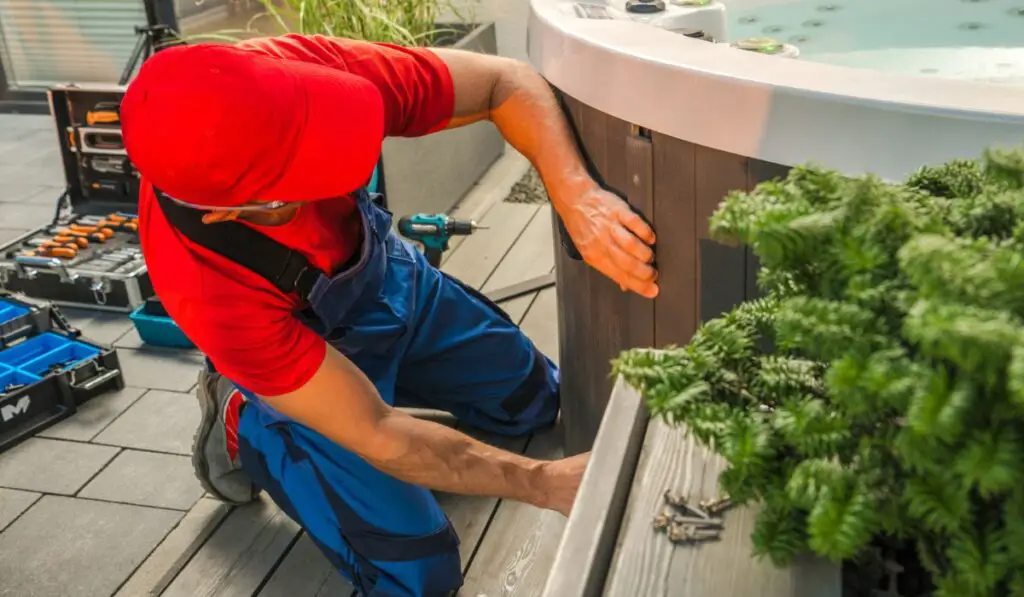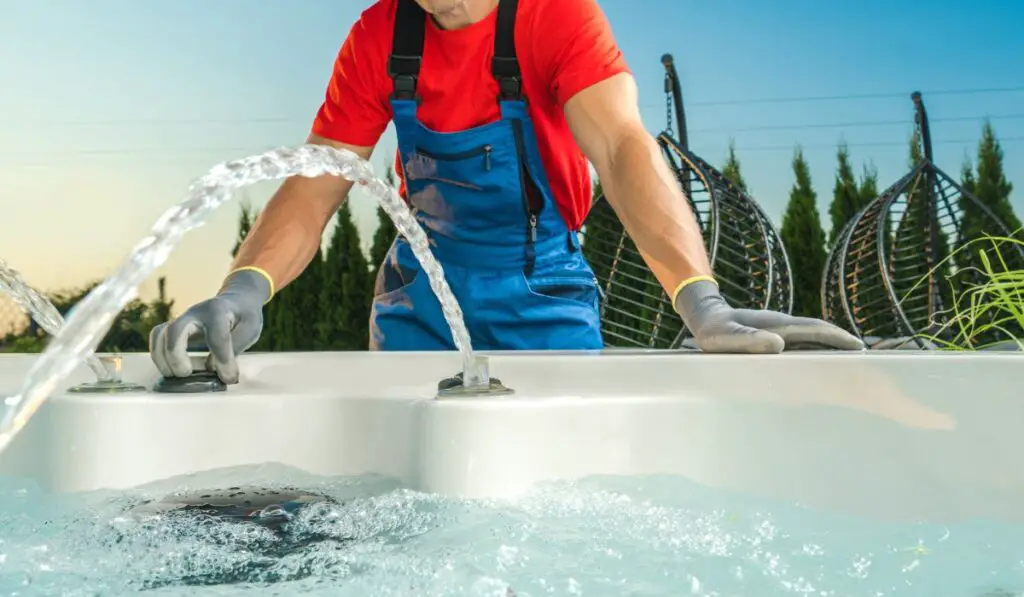Pool pumps, lights, and automatic covers all need electricity to function. But water and electricity are a dangerous combo, plain and simple — and that’s where pool grounding comes in. So, what exactly does grounding a pool do, and what’ll happen if you don’t ground yours?
You need to ground your pool so that there’s a low-resistance pathway for electrical currents to go directly into the ground in case of an electrical fault. If your pool lacks proper grounding, there’s a high risk of metallic components like handrails giving swimmers nasty electric shocks.
Electrical safety is crucial whenever water is involved, and your pool equipment must be properly bonded and grounded to make your pool safe to use. Let’s take a closer look at the grounding process and why it’s so important.
What Does Pool Bonding and Grounding Mean?

Equipotential bonding, or simply pool bonding, is a crucial process in which the electrician connects all your pool’s metal components with a copper wire so they’re in the same bonding grid. This goes for ladders, handrails, pumps, metal piping, and the conduits of your pool lighting.
This isn’t a super expensive or hard project. In fact , you can probably DIY it yourself with a simple grounding kit like this one (on Amazon). But do your research first, and contact a pool company if you have questions.
Think of “equipotential” as the technician’s buzzword to mean the components in your bonding grid can easily attain the same electrical voltage (potential) to reduce the risk of shocks.
Bonding gives the components a pathway for electrical current to flow back to the power source in case of a mishap.
Once a technician bonds your pool’s electrical components, they must be grounded. This means they’ll be connected to the electrical panel and to the ground through a device known as a ground-fault circuit interrupter, or GFCI for short.
In case of an electrical glitch, the GFCI breaker will direct current to the earth instead of zapping the pool users.
Are Grounding and Bonding the Same?
While bonding and grounding are both essential pool safety measures, they’re not the same. The easiest way to wrap your head around these terms is to think of bonding and grounding as a two-step process.
A technician first bonds the pool equipment to set them up for the second part, which involves connecting them to the earth to prevent the danger of electric shocks.
Here are the key points to remember about bonding and grounding your pool:
- Bonding rarely involves driving earth rods into the ground. The rods are only needed for grounding the main electrical panel and any sub-panels that aren’t part of your house.
- It’s usually not necessary to bond temporary pools. Generally, a temporary pool is any above-ground pool that’s less than 4-feet deep. However, permanently installed pools need proper bonding to facilitate easy grounding and promote safety.
- While the bonding and grounding systems serve distinct purposes, they’re often connected.
Does a Pool Need to Be Grounded or Bonded?
A pool needs to be bonded and grounded to protect swimmers from getting electrocuted or damaging the pool’s critical electrical components.
If you’re not sure whether to ground or bond your pool, you’re not alone. The average swimmer or new pool owner probably wouldn’t know.
And that’s simply because technicians take care of these things during the pool construction and installation of key components.
When a pool is bonded and grounded well, it becomes electrically safe for people to be in or around.
So, for your sake, and for the sake of your friends, family, or whoever else might want to use your pool, it’s critical to hire a qualified electrician to bond and ground your pool.
What Happens if My Pool Isn’t Grounded?
If your pool lacks proper grounding and bonding, you risk dealing with nasty electric shocks, or even death.
Remember, grounding involves connecting your pool’s electrical network to the earth (ground) so that any harmful currents will be directed away from people and critical pool components.
Let’s say the insulation fails over the years and a hot wire touches the metal bracket of a light fitting. Since the pool’s light fittings are grounded, the excess current will quickly rush to the earth rather than frying the pool’s electrical components or zapping anyone swimming during the mishap.
Moreover, without proper bonding and grounding, the metallic parts of critical pool components can suffer galvanic corrosion, which gradually takes a toll on their appearance and longevity.
Galvanic corrosion is a destructive chemical process involving the transfer of charged particles from your pool equipment, making your pool behave much like a simple battery.
The metallic structures in the pool then quickly lose their luster and often give people a mild zapping, like the one you’d sometimes feel if you touched an analog TV antenna. People with saltwater pools are more likely to encounter this problem.
How Do You Know if Your Pool Is Grounded?

Experts recommend you go out and check carefully where your pumps and motors are for ground connections. Look for exposed copper wire attached to the pump motor housing and going to the ground.
You can be sure it’s the ground wire if its insulating cover is green or green with yellow stripes. Three-phase wiring often uses black for the ground wire, so you can also expect a wire with black insulation.
You might also want to contact the building department office of your county or municipality to see if your pool had an inspection code at the time of its construction. Alternatively, consult a reputable pool construction company to have their electricians inspect your pool equipment for grounding.
If for some reason you find the pool was not properly grounded, don’t attempt to do it yourself to save some bucks and time. Electrical work around swimming pools can be especially dangerous.
If you have no experience working with electricity, installing your own bonding grid and ground wires can put you at a great risk. Plus, you could put the lives of other people in danger.
You should let a licensed electrician handle all the bonding and grounding work so they can do it correctly the very first time. Otherwise, you could land in trouble if an inspector finds out you did the electrical work yourself.
